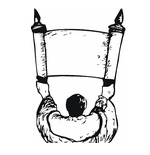
Pope & Rabbi Square Off Over the Teachings of Jesus
CAN THE TORAH BE AMENDED?
Lives there a man who actually deplores Jesus’ Sermon on the Mount? Yes, there does. His name is Jacob Neusner, and he is a highly esteemed and scholarly orthodox rabbi and professor, with more than 900 books to his credit, including several that take Jesus to task for His teachings. Rabbi Neusner views the teachings of Jesus as contrary to the Torah, which he regards as the ultimate and final expression of God’s will and commandments. (The Torah is God’s revelation to Moses at Mt. Sinai as set forth in the first five books of the Bible, the Pentateuch.) Neusner considers that measuring stick fair and appropriate, given Jesus’ statement that He came not to abolish the law and the prophets, but to fulfill them (Mt. 5:17-20).
The culmination of Neusner’s negative analyses, A Rabbi Talks With Jesus, drew the comment from Joseph Cardinal Ratzinger that it was “by far the most important book for the Jewish-Christian dialogue to have been published in the last decade.” That was in 1993 — so why bring it up now? Because Cardinal Ratzinger is now our Holy Father, and he has written his own book, Jesus of Nazareth, in which he frames his sixty-page analysis of the Sermon on the Mount (“the new Torah brought by Jesus”) partially as a rebuttal to the imagined dialogues Neusner would like to have had with Jesus and His disciples, had he been alive in their time. Referring to Neusner’s dialogues from A Rabbi Talks With Jesus, Pope Benedict writes, “More than other interpretations known to me, this respectful and frank dispute between a believing Jew and Jesus, the son of Abraham, has opened my eyes to the greatness of Jesus’ words and to the choice that the Gospel places before us.”
The interplay of their viewpoints can enlighten our own understanding of our Christian faith and the reasons why such a God-fearing Jew as Rabbi Neusner rejects it out of hand. Indeed, so profound is Neusner’s rejection of Jesus and His teachings that Neusner has concluded that “the conception of a Judeo-Christian tradition that Judaism and Christianity share is simply a myth in the bad old sense: a lie” (Jews and Christians: The Myth of a Common Tradition, 2003). Anyone who thinks there can be an honest dialogue between the Church and representatives of Judaism about theology, as opposed to social-welfare projects, should certainly take note of this interplay. And, fittingly, in this year commemorating St. Paul, it may give us insight into the mindset that led Saul of Tarsus to persecute the followers of Jesus.
Underlying the debate between Neusner and Benedict is a two-part question: What does God want of us, and how do we know it? Their answers to the first part are direct. According to the Pope, God wants us to believe in His only begotten Son, Jesus the Christ, and become members of His Body. According to Neusner, “Judaism was and remains God’s will for humanity” — meaning that we are to live in accordance with the tenets of the Torah. Note Neusner’s words for humanity — not merely for Israel. Although Judaism is not a proselytizing religion, and Neusner disclaims any intent to convert his Christian readers, he does not propose the “Two Covenants” approach to salvation, which has been a thread in Jewish theology since the end of the first century — the other covenant, for the Gentiles, being the one God made with Noah and his sons (Gen. 9).
You May Also Enjoy
The Greek polytheists and their Hellenizing allies in Jerusalem tried to woo the Jewish upper classes away from Yahwism with homosexuality.
The grace of marriage allows the parties to become one flesh and calls forth from them the same love Christ has for His Church.
Whereas the results of a DNA test of a famous person such as Jesus normally would be published in a major scientific journal, not so the results of this DNA test.

